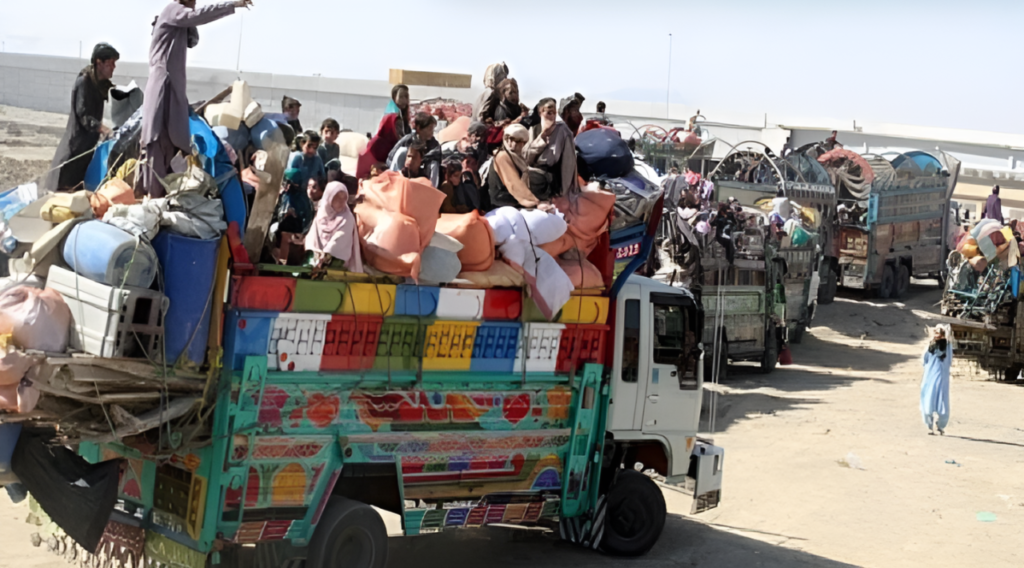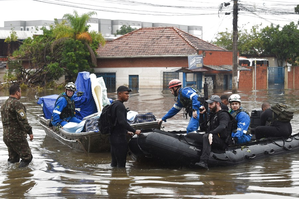Pakistan Orders Afghan Refugees to Leave by March 31, Forced Deportation to Begin in April
Islamabad, March 8 – In a major crackdown on undocumented refugeesPakistan has issued a final ultimatum to Afghan nationals and illegal immigrants, directing them to leave the country by March 31 or face forced deportation starting April 1. This move is part of the Illegal Foreigners Return Program (IFRP)introduced by Prime Minister Shehbaz Sharif’s government on November 1, 2023.
According to a report by Dawnthe Pakistani Ministry of Interior has announced that all Afghan Citizen Card (ACC) holders and undocumented foreigners must exit the country by March 31, 2025. Those who fail to leave voluntarily will be forcibly deported from April 1, 2025. The ministry has assured that no human rights violations will occur during the expulsion process.
Pakistan Blames Afghan Refugees for Security Threats
The Pakistani government has long accused Afghan nationals of involvement in terrorism and crimeciting them as a major security risk. The decision to deport Afghan refugees stems from growing concerns over cross-border terrorism and internal security issues.
In 2023Pakistan launched a large-scale deportation drivetargeting illegal Afghan refugees as part of its broader security policy. The Shehbaz Sharif administration argues that Afghan nationals have played a role in fueling unrest and violence within Pakistan.
Over 800,000 Afghan Refugees Have Returned Since 2023
Key Statistics on Afghan Refugees in Pakistan:
Over 800,000 Afghan refugees have left Pakistan since 2023according to United Nations data.
Pakistan currently hosts approximately 2.8 million Afghan refugeesmany of whom arrived during the past four decades of Afghan conflict.
Following the Taliban’s takeover of Afghanistan in 2021, hundreds of thousands of Afghans fled to Pakistan and Iran.
Before the Taliban’s return, Pakistan already housed around 3 million Afghan refugeesmany of whom had arrived in the 1980s during the Soviet-Afghan war.
After the Taliban’s resurgence, over 600,000 additional refugees entered Pakistan, further increasing the burden on the country’s resources and infrastructure.
Rising Tensions Between Pakistan & Afghanistan Over Refugee Crisis
The mass deportation order has led to increasing tensions between Pakistan and Afghanistanwith humanitarian organizations expressing concerns over the fate of returning refugees.
Despite Pakistan’s assurance of humane deportationthe move has sparked criticism from international bodiesincluding the United Nations and human rights groupswho warn that many Afghan returnees may face persecution and hardships under the Taliban regime.
Afghanistan’s ruling Taliban government has condemned the move, calling it “unjust” and “inhumane”while urging Islamabad to reconsider. However, Pakistan remains firm on its decision, citing national security concerns and the need to reduce economic strain caused by the large refugee population.
What Lies Ahead?
With March 31 as the final deadlinePakistan is expected to accelerate its deportation process in the coming weeks. Afghan refugees who fail to leave voluntarily will face legal consequences and forced expulsion from April 1, 2025.
As tensions escalate between Pakistan and Afghanistanthe fate of millions of Afghan refugees hangs in uncertaintywith many fearing forced displacement, lack of resources, and harsh conditions upon their return.
Related






